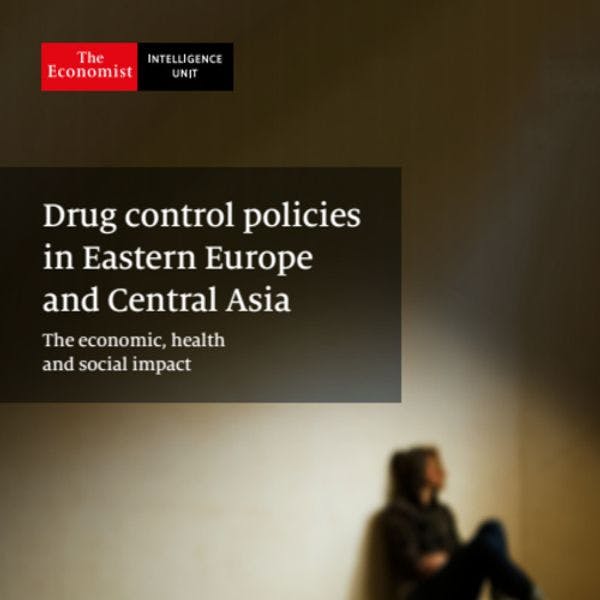The Economist
Políticas para control de drogas en Europa Oriental y Asia Central - El impacto económico, sanitario y social
Políticas para control de drogas en Europa Oriental y Asia Central - El impacto económico, sanitario y social. Más información, en inglés, está disponible abajo.
By Economist Intelligence Unit
The former communist countries of Eastern Europe and Central Asia (EECA) are transition economies, attempting to manage rising healthcare costs whilst reforming their health systems. EECA is one of the few regions in the world where the incidence of Human Immunodeficiency Virus (HIV) is going up. Because of competing needs, public health interventions for HIV have been low on policymakers priority lists, with the allocation of domestic funds to scaling-up HIV prevention programmes falling short of demand.
Criminalisation of drug use and incarceration for drug-related offences are one of the main influences behind an increase in prison populations in EECA countries. Arresting and putting people who inject drugs (PWID) in prison is both expensive and associated with an increase in HIV infections. The funds allocated to incarcerating PWID massively outweigh those spent on prevention and treatment for this group. The stigma associated with drug use in EECA further hinders the expansion of HIV prevention programmes within mainstream public health.
In parts of Western Europe, evidenceinformed, properly scaled up, community-led harm reduction services exist, where criminal sanctions for individual use and possession of drugs are removed and human rights are respected.9 Such harm reduction approaches have helped decrease problems with drug use, reduce overcrowding in prisons and dramatically reduce the incidence of HIV in PWID.9 The case for addressing punitive criminalisation strategies and stigma associated with HIV in PWID in EECA is clear, yet progress towards decriminalisation remains slow.
This Economist Intelligence Unit (EIU) report aims to capture the attention of policy-makers in four study countries in the EECA region; Belarus, Kazakhstan, Kyrgyzstan and Russia to make the case for the cost effectiveness and health gains achieved when the criminalisation of drug use is reduced, harm reduction is scaled up and stigma and discrimination towards PWID and other vulnerable populations is reduced.
